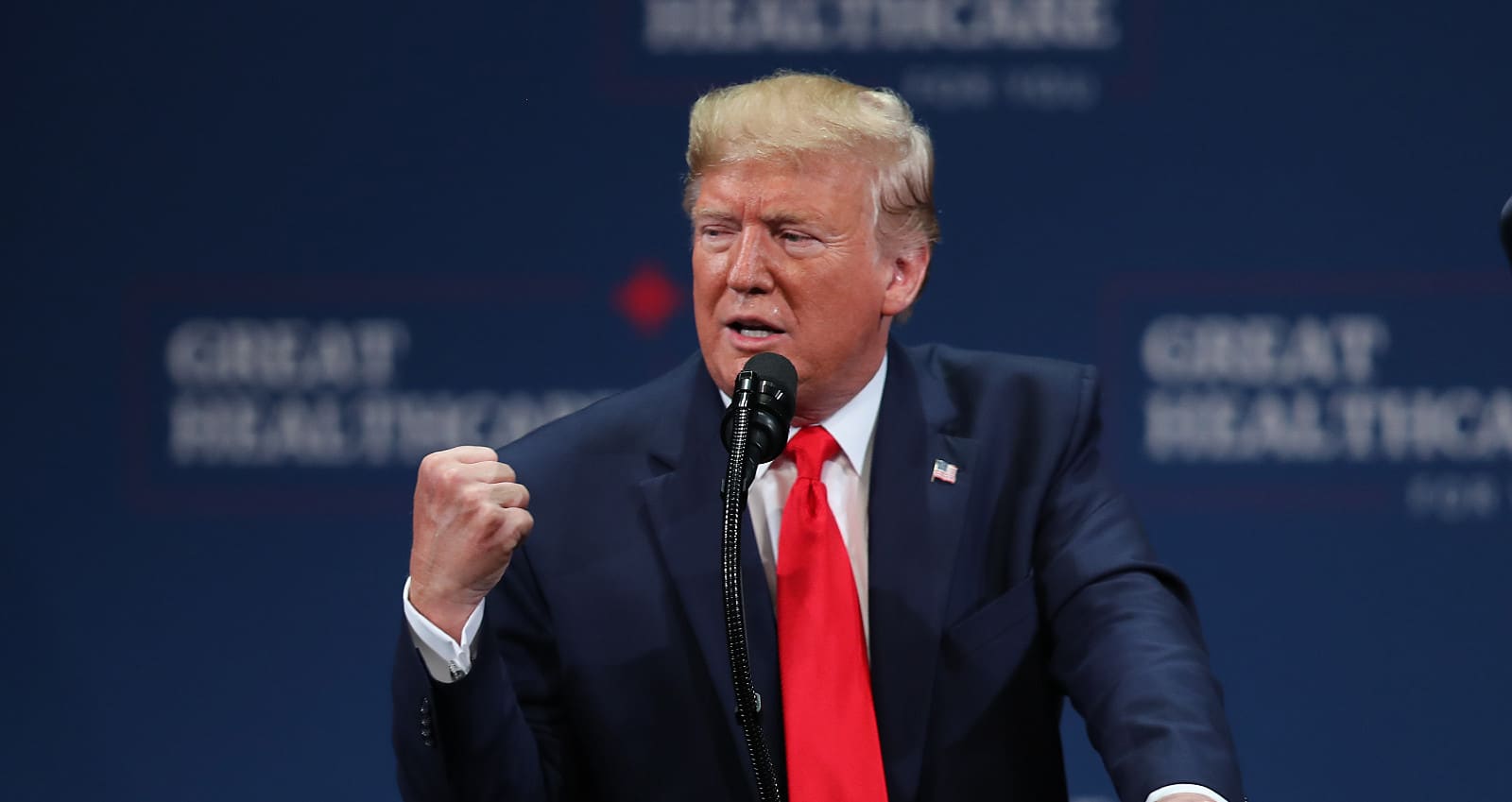OPINION: This article may contain commentary which reflects the author's opinion.
The Illinois election board on Tuesday rejected an objection to the eligibility of former President Donald Trump to appear on the state’s primary ballot.
The Illinois State Board of Elections, comprising an equal number of Republicans and Democrats, has unanimously voted to remove Trump based on a recommendation citing his role in inciting an insurrection. The board unanimously voted 8-0 to assert that it lacks the authority to decide whether Trump is constitutionally disqualified from being included on the ballot, deferring that responsibility to the judicial system.
Trump will be included as a candidate in the March 19 Republican primary election.
The U.S. Supreme Court is scheduled to consider arguments in a comparable case from Colorado at the beginning of the following month. The state’s supreme court determined that the 14th Amendment prohibited the Republican ex-president from being included on the ballot due to his involvement in the U.S. Capitol riot on January 6, 2021. This riot occurred after he was defeated by Democrat Joe Biden in the 2020 election and involved his supporters forcefully entering the Capitol building.
Following concise debates last week, a hearing officer for the Illinois board concluded that the determination of Trump’s eligibility should be left to the courts instead of election officials due to the intricate constitutional matters at hand. However, Clark Erickson, a retired judge and a member of the Republican Party, concluded that, based on the overwhelming evidence presented, Trump’s involvement in insurrection was established and he should be disqualified from running for office.
A group of five voters from Illinois have submitted a petition contending that Trump does not meet the requirements to be included in the ballot, as stated in Section 3 of the 14th Amendment. This provision, which dates back to the Civil War era, bars individuals who have taken an oath to uphold the Constitution and subsequently participated in acts of insurrection or rebellion from holding public office.
Catherine S. McCrory, a Republican board member, expressed her belief that an “insurrection” occurred during the riot at the U.S. Capitol on January 6, 2021, before casting her vote. “I am certain that [Trump] orchestrated, incited, and supported an insurrection on Jan. 6,” stated McCrory. “Nevertheless, I am not in a position to decide on that matter at this time.”
The Trump campaign has consistently characterized attempts to prevent him from appearing on the ballot as an intentional effort to deprive American voters of their right to vote.
Maine’s Secretary of State, Shenna Bellows, filed an appeal on Friday against a judge’s ruling that temporarily suspended her decision to exclude Trump from the ballot. This suspension will remain in effect until the Supreme Court decides on the Colorado case. Bellow, a member of the Democratic Party, expressed her desire to ensure that the highest court in Maine has the chance to give their opinion before the ballots are counted in the March 5 primaries.
The schedules are constrained as the day of Super Tuesday draws near. The U.S. Supreme Court is currently considering the Colorado case on February 8th. This suggests that there may not be sufficient time to adhere to the legally mandated deadlines for Bellows to issue a new ruling on Trump’s ballot status and for any further appeals to be submitted before Election Day.
Fox News reported that lawsuits filed in Minnesota, Michigan, Arizona, and Oregon to prevent Trump from appearing on the 2024 ballot have already been dismissed due to procedural reasons.
U.S. Supreme Court justices will soon rule on the question of whether Trump is ineligible to run for president again due to a constitutional prohibition on insurrectionists holding political office.
Two states have ruled that Trump is ineligible to run for office, citing a 19th-century amendment to the U.S. Constitution and claiming Trump is unable to run over his alleged ties to the attack on the U.S. Capitol on January 6, 2021.
An increasing number of states have determined that the so-called insurrection clause of the amendment does not pertain to Trump.
The U.S. Supreme Court accepted an emergency appeal from attorneys for Trump after the Colorado Supreme Court banned him from that state’s 2024 ballot last month.
The nation’s highest court said that all briefs filed in the case are due by Jan. 31 and that the justices would hear oral arguments on Feb. 8.
